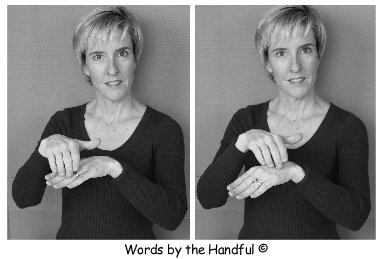
In writing, of course, no such vocal cues are available. But in speech, many speakers would clarify the sense they had in mind by the stress they gave the phrase "more gentle treatment": " more gentle treatment" if the sense were "additional gentle treatment" or " more gentle treatment" if the sense were "gentle treatment relative to X." On its face, the sentence could be using "more gentle" in the sense of "additional gentle" or in the sense of "gentle relative to X" (in this case, X might refer to the gentleness of their previous treatment or to the gentleness with which patients are treated for other conditions or to some other point of comparison).

Patients who suffer complications from the initial infection require more gentle treatment. Moreover, in speech, I have noticed that many people tend to stress different syllables when using "more gentle" in the sense of "additional gentle" than when using it in the sense of "gentle relative to X." Consider this potentially ambiguous sentence: In situations where the intended meaning is "gentle relative to X," the broader context usually provides sufficient information to ensure that hearers or readers can quickly surmise the correct meaning. So, at the outset, it should be obvious that gentler is an unambiguous option when you're trying to say "gentle relative to X" and that it is not an option at all when you're trying to say "additional gentle." The phrase "more gentle" can have two meanings: "gentle relative to X" (where X is the object or standard of comparison) or "additional gentle." The word gentler has only the first meaning. Ibid Chapter 5 investigates the impact of morphological determinants and shows how growing morphological complexity is paralleled by an increased use of the analytic more-variant.Īn interesting (to me) side issue in the "more gentle" versus "gentler" discussion involves the potential for ambiguity.

Disyllabic adjectives accept both strategies. Monosyllabic adjectives take the inflectional form: big, bigger, biggest adjectives with three syllables take the analytic form: intelligent, more intelligent, most intelligent. (.) depends primarily on the syllable structure of the adjective. König (1994:540) states that the choice between the synthetic vs. “More Support for More-Support: The role of processing constraints on the choice between synthetic and analytic comparative forms” By Britta Mondorf Google Ngrams for more gentle,gentler,more common,commoner ĭespite this both are correct and “being more popular” is not the same as “being better”. Disyllabic adjectives may take either but with a tendency/trend towards the analytic “more” but not in all cases. Adjectives with three and more syllables take the “more” form. Monosyllabic adjectives usually take the –er form. Anglo-Norman origins tends to indicate a softer approach and the Anglo-Saxon tends to indicate a more factual/direct approach. In the same way as there is a nuance between (a) “the more gentle detergent” and (b) “the gentler detergent”.Īlthough this origin is disputed by some linguists, In both cases, the (a)s represent the Anglo-Norman (analytic) influence and the (b)s the Anglo-Saxon (synthetic) influence. If you find any bugs in this program please report me at You need to enable JavaScript to run this Website.Generally accepted view is that there is a nuance between “(a) the leg of the table and (b) “the table’s leg”.


GENTLE READER MEANING FREE
Please support this free service by just sharing with your friends. Select the language from the dropdown given below & click on the button (Or Enter) to get the Meaning in your language. These languages include Icelandic, Slovenian, Catalan, Gujarati, Chinese Traditional, Romanian, Irish, German, Lithuanian, Chinese Simplified, Yiddish, Hindi, Slovak, Danish, Hebrew, Macedonian, Croatian, Czech, Norwegian, Albanian, Telugu, Swedish, Welsh, Thai, Azerbaijani, Greek, Haitian Creole, Polish, Japanese, Belarusian, Ukrainian, Esperanto, Vietnamese, Kannada, Estonian, Swahili, Korean, Persian, Portuguese, Urdu, Indonesian, Turkish, Bulgarian, Filipino, Dutch, Latvian, Spanish, Hungarian, Tamil, Serbian, Arabic, Italian, Malayalam, Bengali, Galician, Latin, French, Maltese, Georgian, Basque, Finnish, Malay, Afrikaans, Russian etc. It's a free Multilanguage dictionary with many languages around the World.


 0 kommentar(er)
0 kommentar(er)
